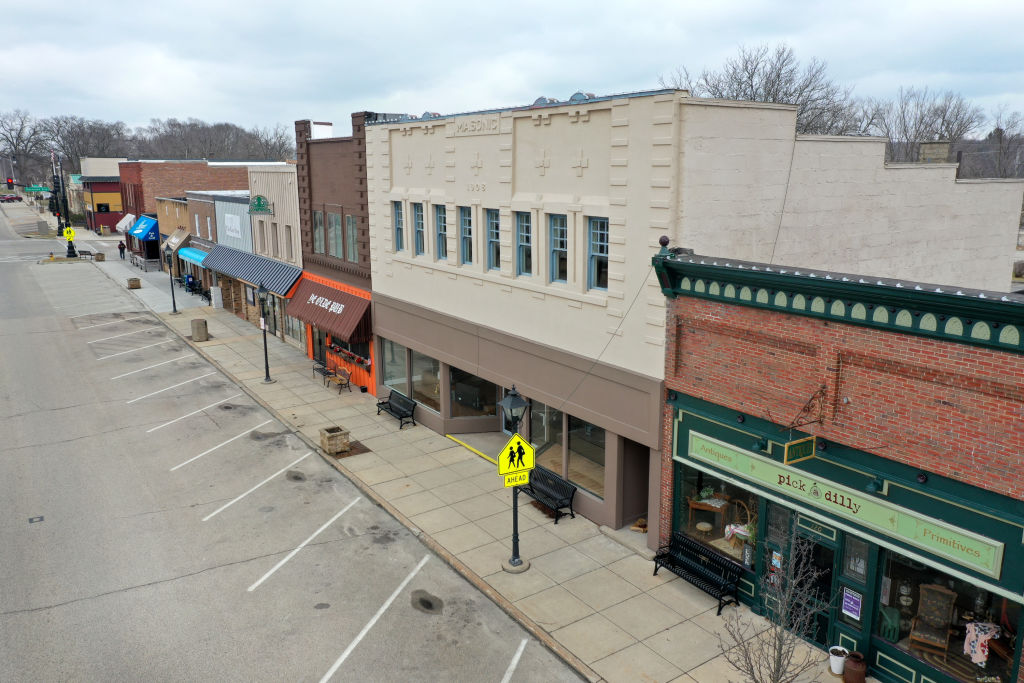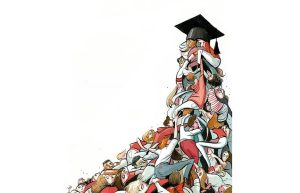A new report finds that for the first time since these things have been kept track of, rural America’s population has shrunk. This trend is a shame for all Americans (except for a few of us who inhabit rural America and enjoy the solitude).
The University of New Hampshire Carsey School of Public Policy findings are based on Census data from April 2010-April 2020, pre-dating the Covid outbreak and its dubious effects on people’s migratory habits (a Pew Research survey suggests that reports of a mass urban exodus during the height of the pandemic were overblown). Kenneth Johnson, the sociology professor who conducted the study, reports that population loss “was widespread across rural America, with more than two-thirds of all nonmetropolitan counties losing population” during this period.
“The loss was minimal,” Johnson notes — “just 289,000 (-0.6 percent) out of 46 million, but it is the first decade-long rural population loss in history.”
The continued abandonment of rural America is disturbing for several reasons. Johnson cites “economic turbulence beginning with the Great Recession of 2007 and continuing through the next decade” as having a “significant demographic impact on rural America.”
Whereas “economic turbulence” sounds sort of fun and exciting, the disheveled storefronts sitting empty on dilapidated Main Streets all across the country, the spooky remains of old abandoned factories that once employed half the town and the weathered skeletons of coal, oil and gas operations rusting and rotting away on the outskirts of forgotten rural communities everywhere are downright depressing. And the unemployed, strung-out shadowy stragglers surviving on subsidized food, health care and housing, even more so.
My small town in Pennsylvania is what Johnson would call an “adjacent micropolitan” place, meaning it’s close enough to a “micropolitan county” (containing a town with between 10,000 and 50,000 residents) to reap the micropolitan town’s economic benefits. This is all sounding very Lilliputian and cute, but what it boils down to is that we aren’t completely neglected and rundown. But if it weren’t for the small neighboring city to which many people commute for work (there’s a university there), we would be.
Ask any local old-timer — heck, even someone barely middle-aged — about what this place was like when they were a kid, and they’ll paint you a picture of an idyllic scene from It’s a Wonderful Life: how downtown was bustling with small, busy, family-owned businesses, there were manufacturing plants, restaurants and car dealerships galore. In the 1980s, helicopters would land at the nicest hotel in town, where local coal magnates would wine and dine and wheel and deal. Today, the rooms of that same hotel are used for low-income housing and emergency shelters for homeless people and abuse victims – many of whom are drug addicts.
What happened? Those same old-timers will blame NAFTA for sending all the industrial jobs overseas. Others will attest our state’s Department of Environmental Protection harassed the coal companies into extinction. An oversimplification of the state of things? Perhaps a little. But not a gross exaggeration, either. “Economic turbulence” doesn’t happen on its own, after all.
Of course there are reasons beyond employment — none that I quite comprehend! — that people move to urban areas, but jobs are the main motivator. The modern insistence that everyone must attend college also doesn’t help the decline in rural population: once kids go to college, rather than learn a trade, they stay in the cities to work city jobs befitting their degree. And absent employment opportunities in rural America, Johnson warns, “population losses are likely to continue.”
“The actual size of the loss isn’t a particularly big deal,” Johnson told The Hill. “The fact that it actually happened, that rural America as a whole lost population, reflects a significant change. The question is, is it just a short-term thing, or is it a longer-term thing?”
So what do we stand to lose if we lose our small towns? A lot. Our wealth, health and happiness, to name a few.
I make no secret of my affinity for country living, and while I know not everyone’s suited for it, data suggests a lot of humans are. It’s not that people particularly want to leave the familiar little places where they grew up, it’s that they have no choice. The Washington Post reported in 2018 that “a team of happiness researchers” (only in Canada) at the Vancouver School of Economics and McGill University interviewed 400,000 Canadians, concluding, “Life is significantly less happy in urban areas.”
Aside from fewer people, the authors found that the happiest communities had shorter commute times and less expensive housing, and that a smaller share of the population was foreign-born. They also found that people in the happiest communities are less transient than in the least happy communities, that they are more likely to attend church and that they are significantly more likely to feel a “sense of belonging” in their communities.
Being happy also makes a person more likely to be healthy, and vice-versa. Abundant green spaces, lower stress levels, pollution-free air — rural places are good for the body and soul. People also generally have to work more in urban areas to afford the cost of living. What’s more, rural places were also once the backbone of America, providing the country with a spirit of self-reliance, pride and a robust economy bolstered by Made in America goods, crops and more.
To combat the devastating effects rural outmigration has on small communities, Johnson suggests “investments in rural infrastructure and other community development activities.” Such schemes have been tried where I live. First the government enacts policies that eradicate the local economy, then it throws money at “community development” projects that do nothing to create or sustain jobs.
My heart aches for those more remote places whose history, heritage and communities are being consumed by soulless urbanized areas made up of monotonous chain stores and cheap, identical housing packed full of miserable strangers.


















